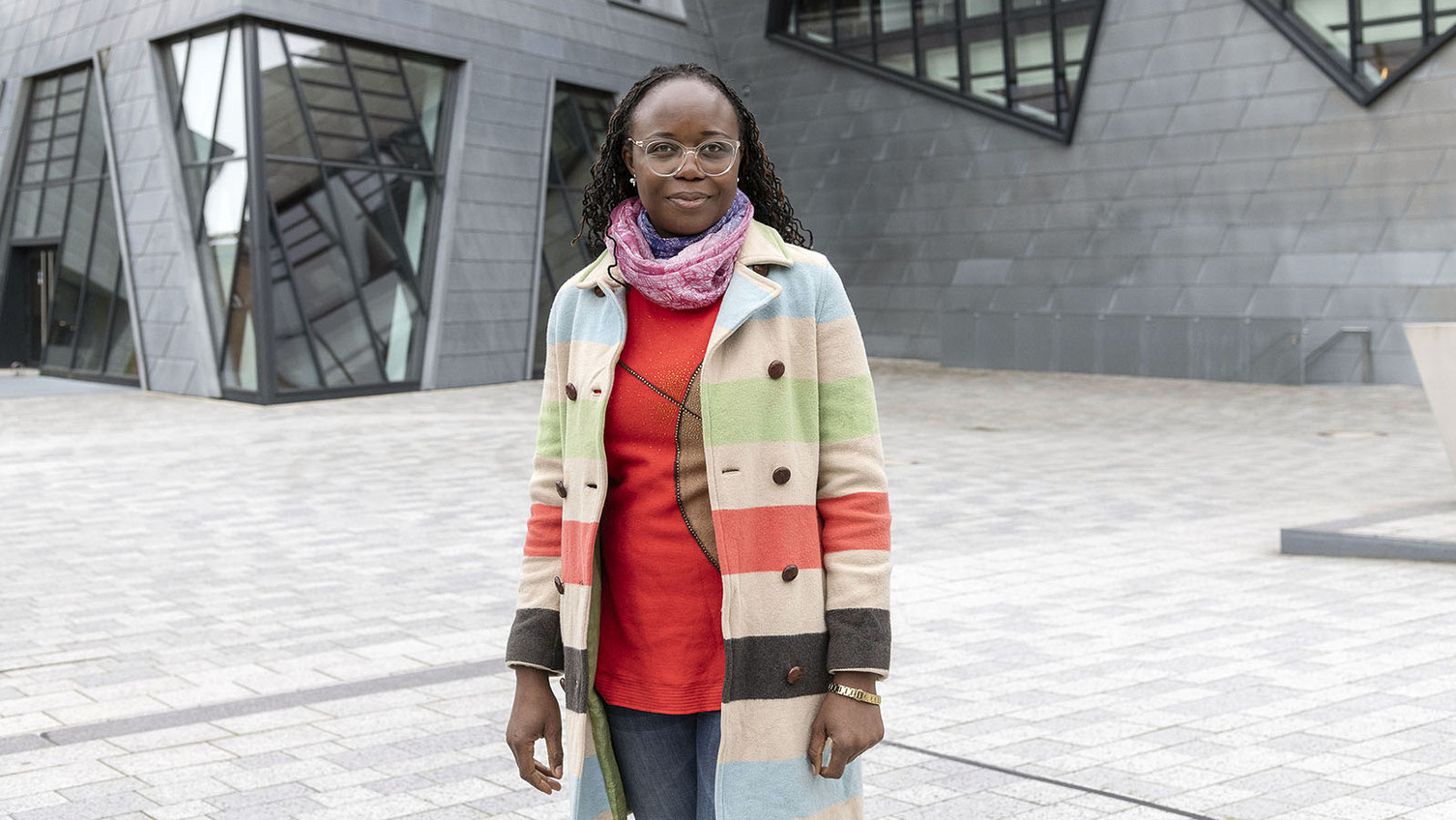Against images of violence in East African media. LIAS Fellow Lydia Ouma Radoli
2024-01-24 The fellowship of Lydia Radoli, who spent a year at LIAS researching The phenomenon of visual witnessing of trauma among journalists in East Africa, ends at the beginning of March. The result is numerous essays, international lectures, and a pioneering network.
Ten thousand kilometres between Nairobi and Lüneburg do not scare Lydia Radoli, a media and communication scientist from Kenya - even when a lot of things come together: a journey with an exciting research stay, during which the woman in her mid-forties has to reconcile the care of her preschool-age child, the new environment, a new school, a new language, and many questions. She has fond memories of the start of her fellowship: "My journey to Lüneburg and Leuphana began when I landed at Hamburg's Helmut Schmidt Airport on 6 April last year, with two suitcases and my nine-year-old son in tow." Her nine-year-old son's questions began on the taxi ride between the airport and Rotes Feld at the sight of Porsches, BMWs, and Volkswagens on the road: "Are we in Germany, Mum?" and "What's your favourite car?"
During the opening days of LIAS, Lydia Radoli already had the opportunity to expand her network in the "LIAS Intervention in Media. Visuals and Trauma in Journalism" workshop. She brought together journalists from Kenya, Uganda, and Rwanda as well as editors, representatives of the Media Council from East Africa for invited LIAS fellows, media scholars, and journalists from Germany to scrutinise the theoretical and conceptual dilemmas of trauma reporting. The journalists spoke about their trauma experiences, and, thanks to LIAS, Radoli was able to establish contact with the international Dart Centre at Columbia Journalism School in New York, the most renowned network about journalism and trauma. Here she will be able to establish further contacts with affected journalists and benefit from the numerous global experts in the long term.
Dethematised in East Africa: Trauma in journalism
In her research, the former journalist asks herself whether reporters can even allow themselves to be vulnerable in their work. Aside from the ethical requirements of selecting images that are suitable for broadcasting, the question of how journalists deal with the extremes of raw images during the production process naturally arises. What are the effects of the multiple exposures that occur during shooting, selection, editing, playback, and review? Does the process of overexposure exacerbate the trauma or is it the experience of constant reporting that triggers the trauma? In fact, it is the editorial work that seems to influence trauma.
“I quickly realised that there was practically no literature on the situation of journalists in East Africa,” says Radoli. “When I started talking to journalists, I realised that I had to ask those who capture images in the form of photographs and videos - the visual rhetors.” The term “visual rhetors” may sound a little strange, especially when everyday language tends to refer to photojournalists. But it broadly encompasses those who witness violence and produce visual images and allow the images to be interpreted within the discipline of rhetoric: as images to achieve a communication goal, e.g. to influence attitudes, opinions, and beliefs.
“It's really difficult to interview journalists for my studies. I was always careful not to re-traumatise them,” Radoli says of her research. “We stopped, joked, laughed, picked up the threads of the stories over tea and mandazi's or samosa, and wove them together until the story was complete. I also spoke to psychosocial experts whose input was important in analysing the aspects of the trauma that were not within my media and communication purview.”
LIAS enables travelling and research with a high impact factor
Lydia Radoli sees a high impact factor in her research: discussion rounds, for example in radio formats and for podcasts or blogs, can help to share content from conversations with journalists, psychosocial experts, media editors, media councils, and decision-makers. She would also like to disseminate practical questions via her web project Diaspora Radio.
With the support of LIAS, Radoli was able to travel to America and Spain. In autumn 2023, she and her son travelled to Madrid for a conference at the Complutense University. While Radoli spoke about the silence in East African newsrooms and among journalists in East Africa, the university took care of the children. “It was an exciting experience for me as a mother and researcher to see what opportunities there are to combine parenthood with bonding, travelling, and academic exchange. We met another mother from the USA who was travelling with her 3-year-old daughter. The children had time to play after the sessions while the parents discussed.” In this way, she met courageous like-minded people and, during her one-year research fellowship, managed to juggle everything with calm and overview.
The LIAS in Culture and Society is primarily aimed at international researchers in their early career phase who would like to contribute their research to the Institute's programme. Please find information on how to apply here.

